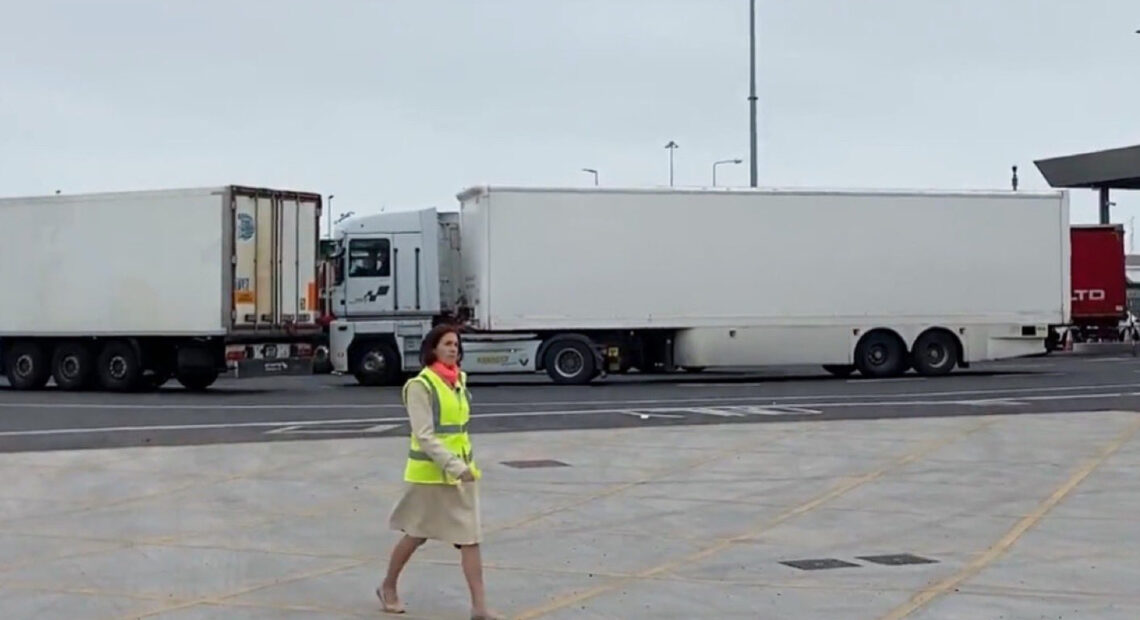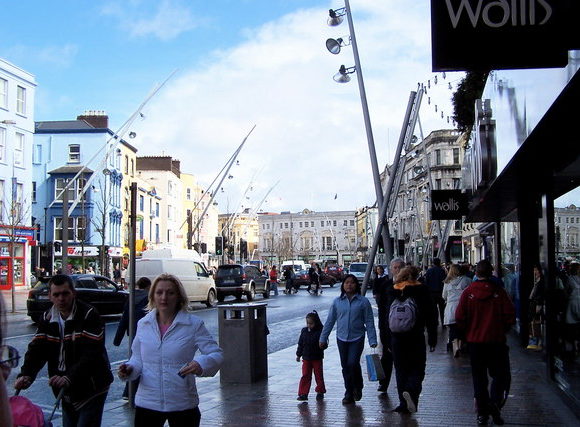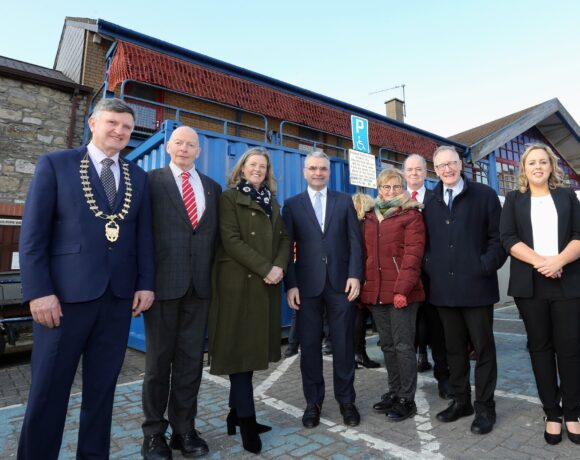Minister for Transport Eamon Ryan, and Minister of State with special responsibility for International and Road Transport and Logistics, Hildegarde Naughton, have published Ireland’s Road Haulage Strategy 2022–2031.
This 10-year strategy fulfils a Programme for Government commitment to produce the first-ever government strategy dedicated to the haulage and road freight sector. The strategy will focus on generating efficiencies, improving standards, securing jobs and helping the road freight sector move to a low-carbon future.
The Strategy sets out the measures and supporting policies needed to deliver on these objectives, in particular for decarbonisation. It also sets out the policies required to develop the skills base needed to ensure the long-term viability of the sector and it considers the potential for intermodal transport of freight, particularly in the context of the All-Island Strategic Rail Review which is near completion. This would mean exploring how road and rail freight transport could interconnect to help reduce emissions and ensure efficient carriage of goods, to and from ports and across the country.
Minister Ryan acknowledged that the haulage sector is a challenging sector to move towards decarbonisation, given that 99% of heavy goods vehicles are currently diesel fuelled). However, he said that this new Strategy – along with other measures and supports which will be put in place – will help drive the shift to zero emissions in heavy goods vehicles and more integrated transport connections, while strengthening the viability of the sector.
He said, “this Strategy is wide ranging and comprehensive and responds to the sector across seven strategic themes. One of these considers the potential for modal shift and intermodal transport in Ireland. While rail freight has historically been low, the forthcoming All Ireland Strategic Rail Review will include considerations of the potential to increase the use of the rail network for freight transport also.”
“Our main ports all have existing rail line connections. The decarbonisation of our haulage system can benefit from the revival of rail freight, by developing a strong interconnection between road and rail transportation. We will update this Strategy to reflect these opportunities when the All Island Rail Review is completed.”
Commenting on the publication, Minister Naughton said, “I am delighted to be able to publish the Road Haulage Strategy 2022–2031 which is the first strategy of its kind for Ireland. The domestic and international haulage and road freight sector plays a critical role in our economy, and as such it is vital that we plan for its future development. The actions arising from this strategy will be key to ensuring that the sector is supported and prepared to overcome the significant challenges it is currently facing, including driver shortages and the decarbonisation of the haulage fleet.”
“A particularly important action arising from this Strategy is the establishment of the Road Freight Forum, a new body which will formalise engagement between Government and industry and which will allow for clearer communications and more collaborative policy development. The Forum will track the implementation of the actions in the Strategy and because we don’t yet have all the answers to the challenges faced by the sector, the Road Freight Forum will also consider the evolution of the Strategy over time, with the identification of new priorities, actions and enablers as needed.”
The publication of the Road Haulage Strategy follows two rounds of public consultation undertaken by the Department of Transport which sought the views of industry and other stakeholders, academia and the wider public on the Strategy’s development. Submissions were analysed by consultants from Arup on behalf of the Department of Transport, and a summary report of key suggestions was prepared and published by the department in July 2022. This final strategy takes account of the submissions received during both consultations.
The strategy has seven thematic sections. They are:
1. Brexit, COVID-19 & Crisis Management
2. Sustainability & Decarbonisation
3. Road Infrastructure and Usage Charging
4. Integrated Transport Planning and Intermodal Transport
5. Road Safety
6. The EU Mobility Package and Road Transport Operator Licensing
7. Labour Market & Skills













